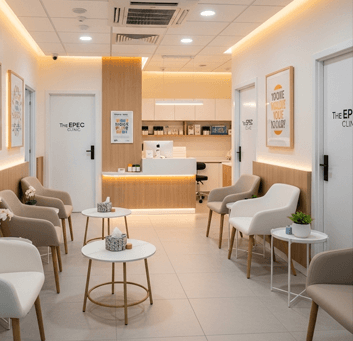Why Does Relapse Occur Often the First Year of Recovery?
- Author
- Nov 16, 2024
- 2 min read

Relapse is common in the first year of recovery due to a combination of biological, psychological, and social factors. This period is often the most vulnerable because individuals are still adjusting to life without their addictive substance or behavior. Here’s why relapse tends to occur during this critical time:
1. Brain Chemistry and Healing
Neuroadaptation: Addiction causes changes in the brain’s reward system, particularly in how it processes dopamine. In early recovery, the brain is still healing, which can lead to intense cravings and difficulty experiencing pleasure from normal activities.
Withdrawal Symptoms: Post-acute withdrawal syndrome (PAWS) can persist for months after stopping use, causing mood swings, anxiety, irritability, and sleep disturbances that increase the risk of relapse.
2. Emotional Challenges
Stress and Emotional Triggers: Without the coping mechanism of the substance, stress or emotional turmoil can feel overwhelming, leading to a relapse as a way to escape discomfort.
Unrealistic Expectations: Early in recovery, individuals may hope for quick improvements in their lives. When challenges persist, frustration or disappointment can trigger relapse.
3. Behavioral Patterns
Habitual Cues: The environment and routines associated with substance use can activate cravings. For example, being in places or around people linked to past use can create a strong urge to relapse.
Lack of Healthy Coping Mechanisms: Building new, healthier habits takes time. Early in recovery, individuals might not yet have developed the skills to handle stress or negative emotions effectively.
4. Social and Environmental Factors
Social Pressure: Friends or family members who still use substances, or environments where substances are readily available, can make it harder to stay sober.
Isolation: Recovery often requires distancing oneself from old social circles that enabled addiction, which can lead to feelings of loneliness or a lack of support.
5. Underlying Mental Health Issues
Co-occurring Disorders: Many individuals in recovery struggle with mental health conditions like anxiety, depression, or trauma. If these issues aren’t adequately treated, they can increase the likelihood of relapse.
Low Self-Efficacy: Early in recovery, individuals may doubt their ability to stay sober, leading to a sense of defeat if they experience cravings or slip-ups.
6. Relapse as Part of the Recovery Process
Relapse does not mean failure; it is often part of the recovery journey. Each relapse provides an opportunity to identify triggers, learn from mistakes, and strengthen one’s recovery plan. The key is to address the relapse quickly and refocus on long-term goals.
How to Reduce the Risk of Relapse
Build a Strong Support Network: Stay connected with recovery groups, therapists, or sponsors.
Identify Triggers: Recognize situations, people, or emotions that may lead to cravings and develop strategies to avoid or cope with them.
Establish New Routines: Replace old habits with healthy activities like exercise, hobbies, or mindfulness practices.
Focus on Self-Care: Prioritize sleep, nutrition, and stress management.
Be Patient: Recovery is a process, and healing takes time. Celebrate small victories and stay committed.
Relapse is not a step backward but an opportunity to grow stronger in the journey toward sustained recovery. Online suboxone doctor and Online Suboxone Clinic.




Comments